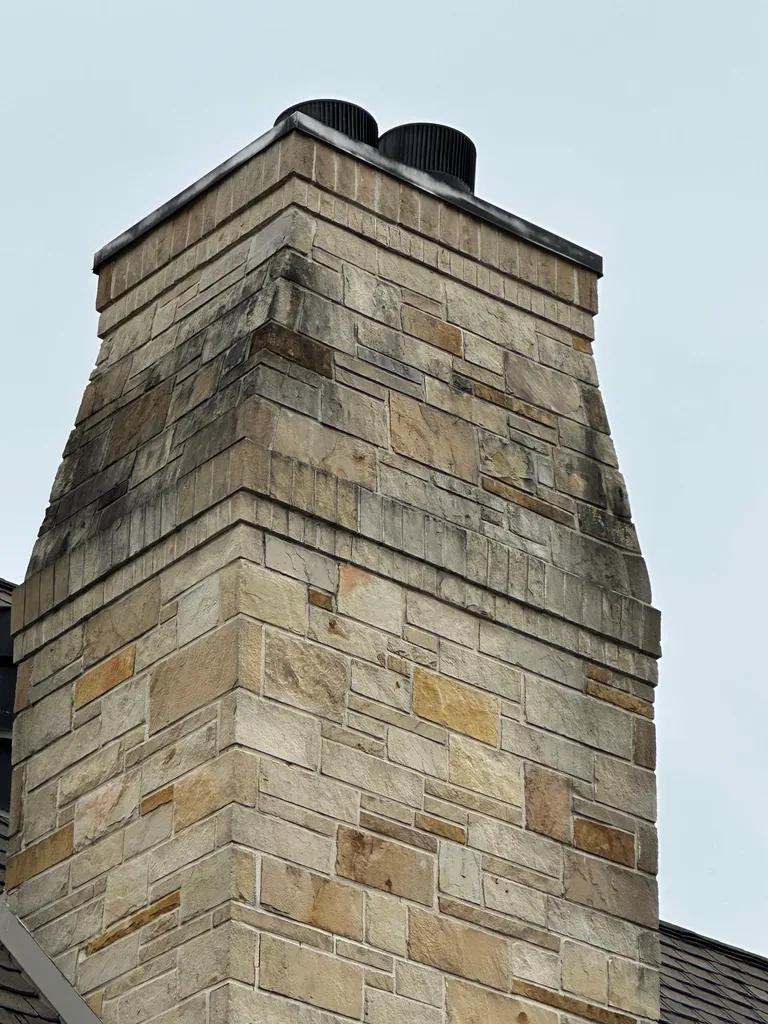Rain leaking around the chimney can cause extensive damage to your Ohio home if left unchecked. Preventing this issue is crucial to preserving the integrity of your property. In this article, we will discuss effective methods to prevent rain from leaking around your chimney in Ohio. Proper maintenance and proactive measures are key to ensuring a watertight seal and protecting your home from water damage.
Table of Contents
- Identifying Common Causes of Rain Leaking Around Chimney
- Effective Sealant Options for Fixing Leaks
- The Importance of Proper Chimney Flashing Installation
- Preventative Maintenance Strategies for Long-Term Leak Prevention
- Q&A
- In Summary

Identifying Common Causes of Rain Leaking Around Chimney
When it comes to preventing rain from leaking around your chimney in Ohio, it’s crucial to first identify the common causes of this issue. One of the primary reasons for rain leaking around chimneys is damaged or worn-out chimney flashing. The flashing is the metal piece that seals the joint between the roof and the chimney, and if it’s damaged or improperly installed, water can easily seep in.
Another common cause of rain leaking around chimneys is cracked or deteriorating mortar between the chimney bricks. Over time, the mortar can break down due to weather exposure and age, allowing water to enter through the gaps. Regular inspections and maintenance of the flashing and mortar are essential to prevent rain leaks around your chimney. Additionally, ensuring proper ventilation in the attic can help reduce moisture buildup, preventing potential water damage.

Effective Sealant Options for Fixing Leaks
When it comes to preventing Ohio rain from leaking around your chimney, it’s important to choose the right sealant options. One effective option is using a high-quality silicone sealant. Silicone sealants are known for their durability and flexibility, making them ideal for sealing gaps and cracks around chimneys. Another great option is using polyurethane sealants. Polyurethane sealants provide excellent adhesion and are resistant to weathering, making them a reliable choice for chimney leaks.
For an extra layer of protection, consider using a waterproofing sealant along with your chosen sealant option. Waterproofing sealants help to repel water and prevent moisture from seeping in around your chimney. Remember to thoroughly clean and dry the area before applying any sealant to ensure proper adhesion. With the right sealant options, you can effectively prevent Ohio rain from causing leaks around your chimney.

The Importance of Proper Chimney Flashing Installation
Proper chimney flashing installation is essential in preventing rainwater from leaking around your chimney in Ohio. This protective barrier is designed to create a watertight seal between your roof and chimney, ensuring that water does not seep into your home and cause damage. Without adequate flashing, rain can easily infiltrate your roof, leading to costly repairs and potential structural issues.
Investing in professional chimney flashing installation can save you time and money in the long run. By ensuring that your chimney is properly sealed, you can prevent water damage, mold growth, and other issues associated with leaks. Additionally, proper flashing can help extend the lifespan of your roof and chimney, protecting your home for years to come.

Preventative Maintenance Strategies for Long-Term Leak Prevention
When it comes to preventing Ohio rain leaking around your chimney, there are several preventative maintenance strategies you can implement to ensure long-term leak prevention. One of the first steps is to regularly inspect the flashing around your chimney. Over time, flashing can become loose or damaged, allowing water to seep in. By inspecting and repairing any issues with the flashing, you can help prevent leaks before they become a major problem.
Another important preventative maintenance strategy is to keep your chimney cap in good condition. Chimney caps help to prevent rainwater from entering the chimney stack and causing leaks. Make sure your chimney cap is securely in place and free from any debris that could block water drainage. Additionally, consider installing a chimney cricket if your chimney doesn’t already have one. A chimney cricket is a small slope-shaped structure that helps to divert water away from the chimney, further reducing the risk of leaks.
Q&A
Q: What are the common causes of rain leaking around a chimney in Ohio?
A: Common causes of rain leaking around a chimney in Ohio include deteriorating chimney mortar, cracked chimney flashing, and damaged chimney caps.
Q: How can deteriorating chimney mortar contribute to rain leaks?
A: Deteriorating chimney mortar can allow rainwater to seep through gaps and cracks, leading to leaks around the chimney.
Q: How can cracked chimney flashing be a factor in rain leaking around a chimney?
A: Cracked chimney flashing can allow rainwater to enter the space between the chimney and the roof, causing leaks to occur.
Q: What role do chimney caps play in preventing rain leaks?
A: Chimney caps act as a barrier to prevent rainwater from directly entering the chimney and causing leaks.
Q: What steps can homeowners take to prevent rain leaks around their chimney in Ohio?
A: Homeowners can regularly inspect and maintain their chimney, ensure that the chimney flashing is in good condition, and install a quality chimney cap to prevent rain leaks.
In Summary
In conclusion, taking proactive steps to prevent rain leakage around your chimney in Ohio can help maintain the integrity of your home and prevent costly damage in the long run. By inspecting your chimney regularly, addressing any issues promptly, and ensuring proper installation of flashing and seals, you can effectively protect your home from water damage. Remember, a small investment in preventative measures now can save you from significant repairs later on. Thank you for reading, and we hope this article has provided valuable information to help you safeguard your property.


